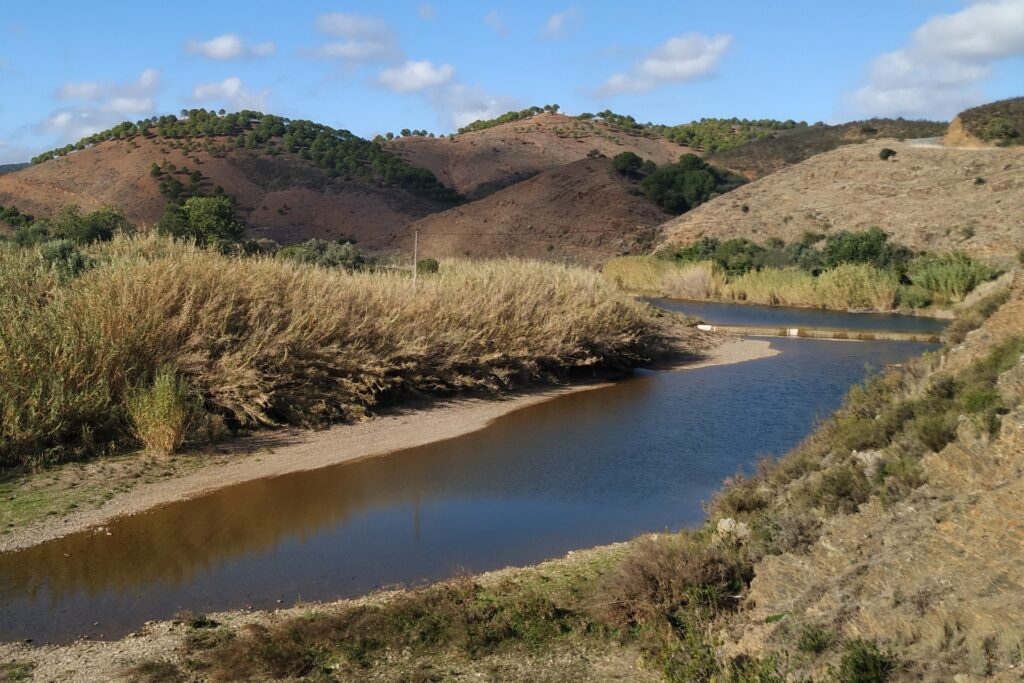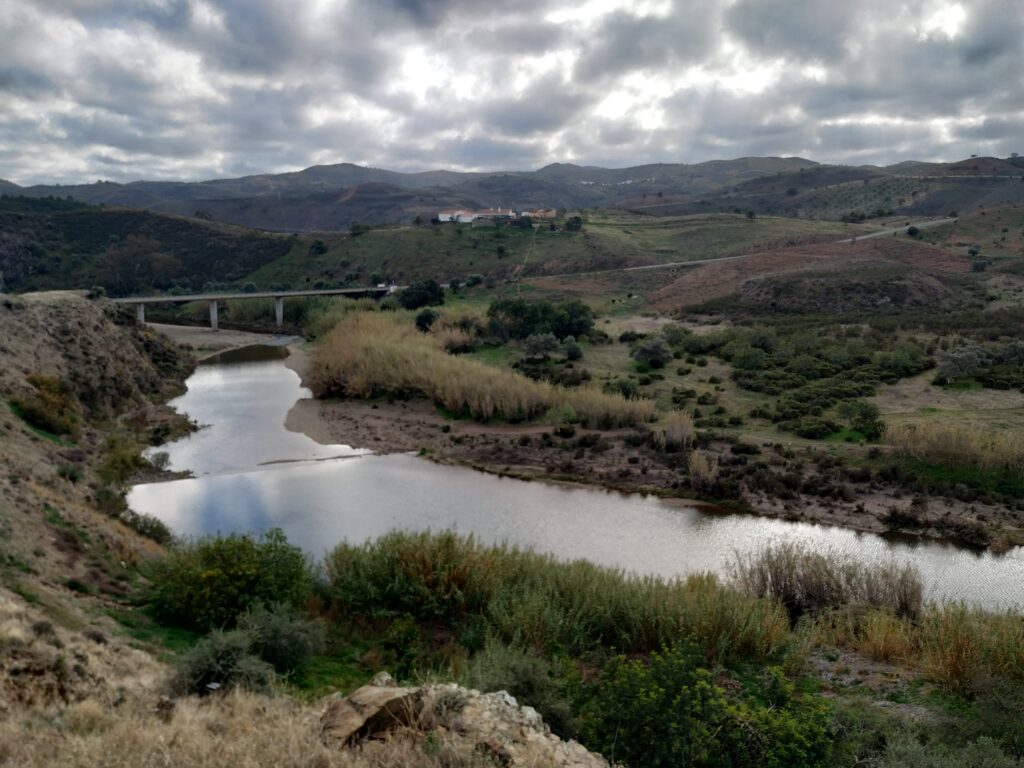The Galaxes weir on the Odeleite stream, located in the town with the same name as the Parish of Vaqueiros, in the municipality of Alcoutim, will become, this summer, the first obsolete river barrier to be overthrown by a civil society movement, in Portugal, thanks to a partnership between the Associação Natureza Portugal/WWF and the Alcouteneja Chamber.
This will be «a pioneering gesture in Portugal» and will allow the «reconnection of the course of the Odeleite stream, in the Guadiana river basin», according to the ANP/WWF. The initiative is supported by the European Open Rivers programme.
The dam in question had already been identified as obsolete by the Instituto de Conservação da Natureza e Florestas in 2014, “because it never fulfilled the intended purpose of its construction”.
For Ângela Morgado, executive director of the ANP/WWF, «over the last century, we have witnessed an exponential increase in the installation of barriers in our rivers, with a very negative impact on nature, such as, for example, the blocking of migratory routes and the movements of many species of fish and others'.
“These barriers can also have consequences for the well-being of people, due to the risks that derive from their lack of maintenance, worsening erosion of beaches and global warming. We hope that this pioneering project will serve to drive other removals of river barriers and that, finally, this theme will cease to exist only in intentions and on paper», he wished.
«It didn't make any sense to maintain, in our municipality, a river barrier that never served its purpose, nor did it ever bring benefits to the population. We were careful to make the local population aware of this project, so that they could understand the benefits resulting from the removal of this dam for the region”, said Paulo Paulino, vice-president of the Alcoutim Chamber.
Via European Open Rivers Program (EORP) – an organization that allocates funds dedicated to the restoration of rivers – the ANP|WWF identified this weir to be removed «with the aim of improving the habitat conditions of several endangered fish species, especially the saramugo – the species of most threatened non-migratory fish in Portuguese fresh waters, endemic in the Guadiana river basin – and for the eel, which was part of the river’s biodiversity and is still used in local cuisine», the association said.
“This removal will therefore be essential to restore the river connectivity of 7,7 kilometers of river which, in turn, will boost the conservation of fish populations and several species of riverside birds and iconic mammals, such as the otter and the endemic and threatened Iberian lynx», he summarized.
This removal will also have socio-economic advantages, “including the promotion of rural tourism activities, as well as benefits for fishermen, as the restoration of river continuity allows healthier ecological conditions for fish populations with high economic value”.
Removal of the barrier will take about a month, followed by the recovery of natural riverine ecosystems, including river banks and riparian galleries. This natural recovery process will be monitored once every three months for a period of one year.
“It is with great satisfaction that the Open Rivers Program supports the first removal of a river barrier by a civil society entity in Portugal. This removal will not only release around 8 kilometers of much-needed habitat for local endangered freshwater species, but will also inspire and pave the way for further removals in the watershed, boosting the dam removal movement in Portugal,” said Jack Foxall, executive director of EORP.
“The removal of obsolete river barriers with a view to ecological restoration of rivers has become inevitable all over the world and some European countries already show concrete positive results with the removal of dams. Portugal is still far behind in this process, being one of the Western European countries with the fewest dams removed. In this sense, Portugal is hosting this year the 7th Seminar Dam Removal Europe, where several European experts will be present who will present successful cases of dam removal across Europe, as well as good practices, the best methods, costs and benefits», concluded the ANP/WWF.





















Comments